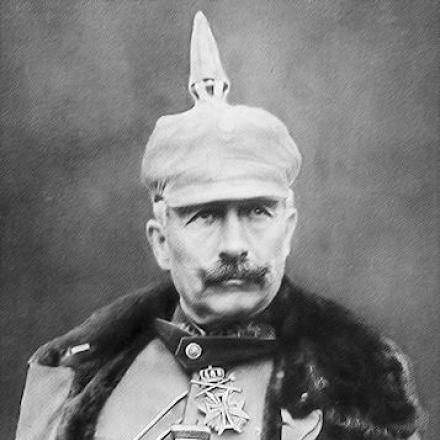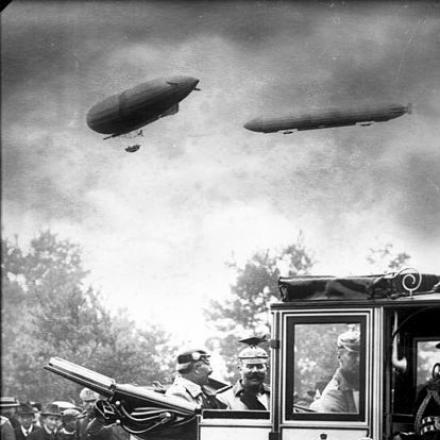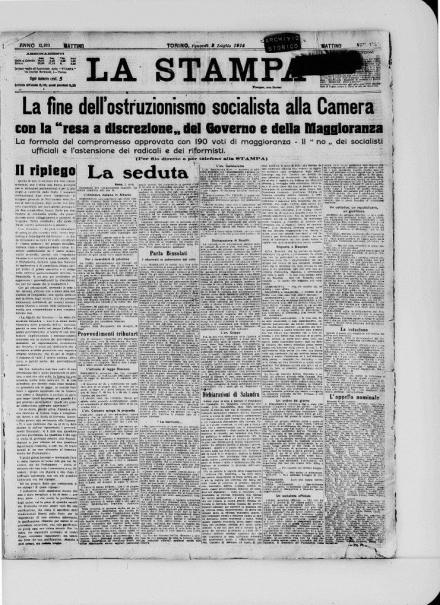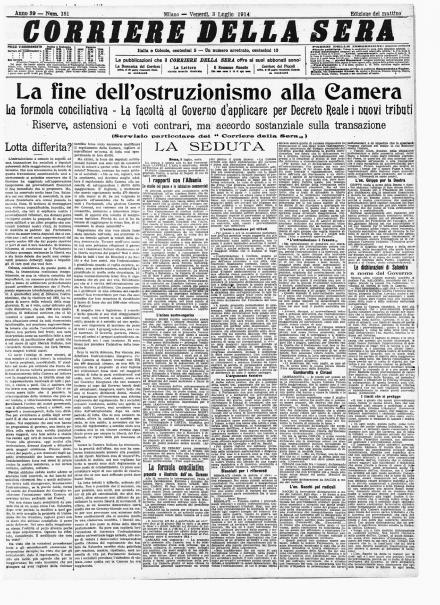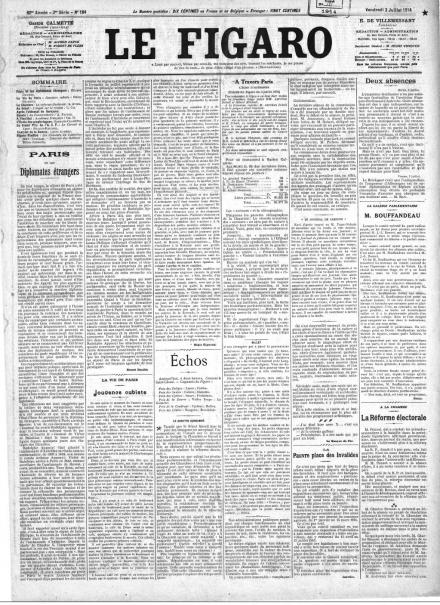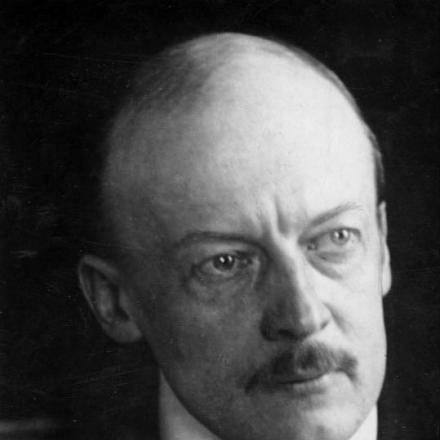Gugliemo II assente ai funerali dell’arciduca
Il Kaiser Guglielmo II non parteciperà ai funerali dell’Arciduca Francesco Ferdinando.
L’assenza è giustificata da una «dolorosa lombaggine», causata dalla passeggiata mattutina a cavallo. Credibile? Non troppo; al massimo plausibile.
Le ipotesi impazzano. Si va dal timore per la sicurezza a una cortesia verso l’Imperatore asburgico Francesco Giuseppe: ottantaquattrenne e cagionevole di salute, non lo si vorrebbe affaticare con i lunghi ricevimenti ufficiali.
Ma la motivazione più fantasiosa la regala il giornale Reichspost: Guglielmo II diserterà la cerimonia per protestare «contro l’eccessiva modestia dei funerali e la grettezza di certi impiegati della Corte». Tanto di cappello.
Il 3 di luglio la Germania ha ben altro per la testa: i tedeschi hanno ottenuto importanti concessioni petrolifere in Medio Oriente; ora hanno bisogno di un porto amico sul Golfo Persico. L’idea è di prolungare la ferrovia Berlino-Baghdad fino a Bassora.
E’ un gran colpo: spalancherebbe le porte dell’Oceano Indiano, bypassando il Canale di Suez e, di conseguenza, i britannici. E’ il sogno dell’imperialismo tedesco, ci lavorano da anni.
Berlino ha anche parlato con Downing Street e trovato un accordo: la ferrovia non dovrebbe causare attriti con gli inglesi, ma usando il condizionale si sbaglia meno.
Davide Sartori
GLI AVVENIMENTI
Politica e società
- A Vienna funerale della coppia reale in forma privata.
- L'addetto militare sassone a Berlino riferisce che il Comando generale tedesco "sarebbe contento se la guerra dovesse avvenire ora".
- La Germania ottiene importanti concessioni petrolifere in Medio Oriente; cerca un porto amico sul Golfo Persico. L’idea è di prolungare la ferrovia Berlino-Baghdad fino a Bassora.
Parole d'epoca
Leopold Berchtold
Ministro degli Affari esteri austriaco
Resoconto dell'incontro avuto il giorno precedente con l'Ambasciatore tedesco Tschirschky
Discourse between Count Berchtold and the German Ambassador. Vienna, 3 July 1914
In the course of a discourse with the German ambassador on the 2 July I called his attention to the fact that the drama of Sarajevo was but another proof of the serious consequences of Greater Servia’s systematic intriguing, and added that these dangerous dealings could not be otherwise stopped, than by a regardless action against Servia itself. Not only our interests demand this, but those of Germany as well. To-days message from, Semlin [Serbia] according to which twelve assassins are on the way with the intention of murdering Emperor William, would perhaps open eyes in Berlin to the dangers that threaten us from Belgrade.
Herr von Tschirschky did not deny this, and assured me that according to his belief only firm and energetic acting could have the desired result. I must surely know that during the crisis Germany had repeatedly declared that in Balkan politics it would always stand on our side, whenever that was necessary.
When I remarked that I had repeatedly been assured of this, but that in practise I had not always been supported by the Berlin cabinet and did not know to what extent I could rely upon it, the ambassador replied that privately he understood the attitude of his government to be due to the fact that we were always expounding ideas, but had never formed a definite plan of action and that Berlin could only make our cause its own, if we came forward with such a plan.
Recently Prince Hohenlohe had explained to him the necessity of closing accounts with Servia. He had answered the Prince that this was “all very fine, but that it must be clear how far one intended to go, what was to be done with Servia if it came to serious results and above all things a favourable diplomatic situation must be created, and one must first of all be sure of the attitude which Italy and Roumania would adopt. It would be a serious affair to begin war with Servia, without being safe beforehand that Italy and Roumania would not attack one at the same time.”
I replied to the ambassador that the question how far one ought to go and what was eventually to be done with Servia must at the critical moment be left for us to decide according to circumstances. What was to be done with Servia in case of a victory—must be regarded in the light of a cura posterior. As to Roumania we cannot stoop to questioning it, at the risk of impossible compensations being demanded. When Roumania, without consulting us, joined Servia in attacking defenceless Bulgaria, very much against our interests, as it well knew, Germany concurred and gave us to understand that we must keep quiet. This is exactly what we ask of Germany now,—that it should use its influence over Roumania in thes ame sense, when we, to save the integrity of the monarchy strike a blow against Servia.
Herr von Tschirschky said he considered this perfectly justified, and was thinking more of Italy, which, considering, that we were its allies, should be consulted before we took in hand an action involving war.
To this I replied that if we consulted the cabinet of Rome in this question it would no doubt ask for Valona in compensation and this we could not concede. It would be the Berlin cabinet’s affair to explain to Rome that we were fighting for our existence and as no turkish territory was in question, the stipulations of the Triple Alliance do not justify Italy in demanding any compensation whatever.
